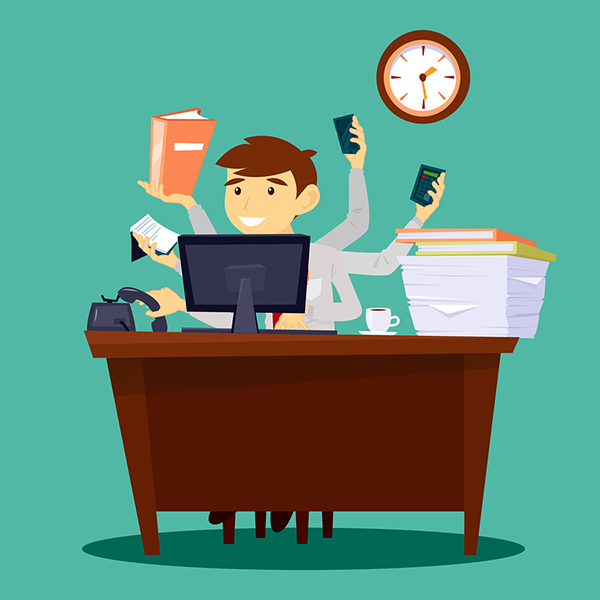Want greater productivity and enjoyment while you work? Then stop multitasking, especially if you think you are good at it.
While multitasking has been lauded in the workplace and in our personal lives, research continually finds it to be counter-productive.
Human multitasking is the apparent handling by an individual of more than one task at a time. The term is derived from the computer engineering industry and refers to the ability of a microprocessor to apparently process several tasks simultaneously.
Computer multitasking in single core microprocessors actually involves time-sharing the processor; only one task can actually be active at a time, but tasks are rotated through many times a second. The first published use of the word ‘multitask’ occurred in 1965, appearing in an IBM paper describing the capabilities of the IBM System/360.
Since the 1960s, experimental psychologists have conducted experiments on the nature and limits of human multitasking.
Generally research has shown few, if any, benefits of multitasking and has revealed some disturbing facts. A common finding is that if you attempt to do two tasks at the same time, it will take you 50% longer than if you did them one after the other. Even worse, if you multitask, research suggests you will also make twice as many errors.
Researchers have long suggested that there appears to be a processing bottleneck preventing the brain from working on certain key aspects of two tasks at the same time. It appears that the cognitive function subject to the most severe form of bottlenecking is the planning of actions and retrieval of information from memory.
With the exception of physical activity such as walking or eating, it has been found that the brain simply cannot do two things at once. If you try to multitask, your brain will help you out by switching between tasks as rapidly as it can. But this chews up time and energy. Your brain has to constantly monitor when to change tasks, turn rules on and off each time a task is swapped, and remember where it was up to. Switching tasks loses time, uses up mental energy and releases stress hormones into the body.
If it is counter-productive and ineffectual, why do we do it? Maybe because we feel everyone else is multitasking, or for the small dopamine rush we get when the brain switches tasks.
So what is the better approach?
The general consensus is that you will achieve more and cope better if you focus on one task at a time, and wisely choose which task that is. The skill of focusing is crucial to keep one’s mind on the task and not be distracted by anything else that needs attention.
The term and practice of “mindfulness” is currently in vogue as a technique to help focus. At its most basic level, mindfulness means paying attention to one thing at a time.
| How to be more productive
Organise yourself to get more out of your day. Tricks and techniques to find more time, to do what you have to do, and more. See our Sheridans flier on this topic. |
December 2014

